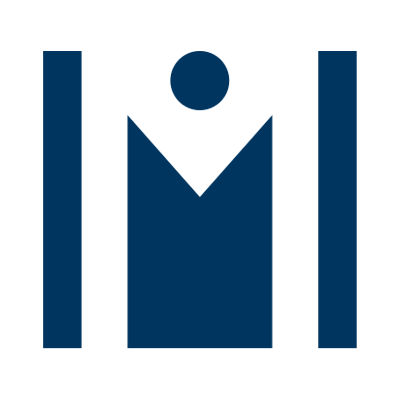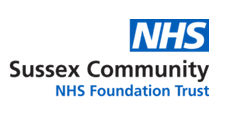预约演示
更新于:2025-05-07
Ophthalmoplegia, Chronic Progressive External
慢性进行性眼外肌麻痹
更新于:2025-05-07
基本信息
别名 CPEO、CPEO - chronic progressive external ophthalmoplegia、Chronic Progressive External Ophthalmoplegia + [54] |
简介 A mitochondrial myopathy characterized by slowly progressive paralysis of the levator palpebrae, orbicularis oculi, and extraocular muscles. Ragged-red fibers and atrophy are found on muscle biopsy. Familial and sporadic forms may occur. Disease onset is usually in the first or second decade of life, and the illness slowly progresses until usually all ocular motility is lost. (From Adams et al., Principles of Neurology, 6th ed, p1422) |
关联
6
项与 慢性进行性眼外肌麻痹 相关的药物靶点 |
作用机制 IL-13抑制剂 |
在研机构 |
原研机构 |
最高研发阶段批准上市 |
首次获批国家/地区 欧盟 [+3] |
首次获批日期2021-06-17 |
靶点 |
作用机制 RT抑制剂 |
非在研适应症 |
最高研发阶段批准上市 |
首次获批国家/地区 美国 |
首次获批日期2016-11-10 |
作用机制 NAD+调节剂 [+1] |
非在研适应症 |
最高研发阶段临床3期 |
首次获批国家/地区- |
首次获批日期1800-01-20 |
34
项与 慢性进行性眼外肌麻痹 相关的临床试验NCT06509880
The Role of Neutrophil Mitochondrial Dysfunction in Medical Rehabilitation During Palliative Chemotherapy for Metastatic Colorectal Cancer
The goal of this study type: clinical trial is to primary purpose: e.g., learn if intervention or health behavior can treat, prevent, diagnose etc. and improve the quality of life and reduce one-year mortality in palliative treatment of metastatic forms of colorectal cancer.. The main question[s] it aims to answer [is/are]:
1. Does the combination of sodium adenosine nucleonate and FOLFOX course affect chemotherapy efficacy and treatment adherence?
2. which of the assays can be considered a marker of the efficacy of the combination of sodium nucleonate and FOLFOX?
3. Effect of the combination of adenosine nucleonate sodium and FOLFOX on patient quality of life?
* If there is a comparison group:_ Researchers will compare [compare the two arms of the main arm 100 patients and the control arm 100 patients] to see if [insert effects].
Participants will [describe the main tasks participants will be asked to do, interventions they'll be given and use bullets if it is more than 2 items].
1. To evaluate the efficacy of palliative care with 4 courses of FOLFOX-based chemotherapy combined with sodium nucleonate for metastatic colorectal cancer (CRC) in the main group.
2. In the control group in metastatic colorectal cancer to study the efficacy of 4 courses of stand-alone standard chemotherapy according to the FOLFOX scheme.
3. To examine the obtained results and compare the quality of life, dynamics of laboratory tests and overall survival in the main and control groups.
4. To evaluate the influence of quantitative and qualitative indices of mitochondrial activity in the blood of patients in the main and control groups.
5. To reveal the correlation between the dynamics of mitochondrial dysfunction, quality of life of patients, tolerance to toxic effects of chemotherapy, as well as the reduction of one-year mortality in patients with colorectal cancer.
1. Does the combination of sodium adenosine nucleonate and FOLFOX course affect chemotherapy efficacy and treatment adherence?
2. which of the assays can be considered a marker of the efficacy of the combination of sodium nucleonate and FOLFOX?
3. Effect of the combination of adenosine nucleonate sodium and FOLFOX on patient quality of life?
* If there is a comparison group:_ Researchers will compare [compare the two arms of the main arm 100 patients and the control arm 100 patients] to see if [insert effects].
Participants will [describe the main tasks participants will be asked to do, interventions they'll be given and use bullets if it is more than 2 items].
1. To evaluate the efficacy of palliative care with 4 courses of FOLFOX-based chemotherapy combined with sodium nucleonate for metastatic colorectal cancer (CRC) in the main group.
2. In the control group in metastatic colorectal cancer to study the efficacy of 4 courses of stand-alone standard chemotherapy according to the FOLFOX scheme.
3. To examine the obtained results and compare the quality of life, dynamics of laboratory tests and overall survival in the main and control groups.
4. To evaluate the influence of quantitative and qualitative indices of mitochondrial activity in the blood of patients in the main and control groups.
5. To reveal the correlation between the dynamics of mitochondrial dysfunction, quality of life of patients, tolerance to toxic effects of chemotherapy, as well as the reduction of one-year mortality in patients with colorectal cancer.
开始日期2024-07-15 |
申办/合作机构- |
NCT06191965
Double Blind, Randomized, Placebo-Controlled Study of MitoQ As Adjunctive Treatment for Patients with Early-phase Schizophrenia-spectrum Disorder and Mitochondrial Dysfunction
The goal of this double-blind, placebo-controlled randomized clinical trial is to test the effect of 12 weeks of orally administered MitoQ (mitoquinol mesylate) supplementation on cognition in 50 people with early phase schizophrenia-spectrum disorders (E-SSD) who have mitochondrial dysfunction (called high risk, or HR). Cognitive impairments in SSD can cause significant disability. Yet, there are no effective treatments for cognitive impairments in SSD. It has been shown that alterations in a certain type of brain cell (parvalbumin interneurons, or PVI) underlie cognitive deficits in SSD. These PVI, which fire at a fast rate, utilize high amounts of energy from the mitochondria and are highly vulnerable to oxidative stress. MitoQ is an antioxidant. Research has shown that, in mice, MitoQ can reduce oxidative stress in the mitochondria. The main question that this clinical trial aims to answer is:
• Does MitoQ supplementation, compared to placebo, improve cognition in HR patients?
Secondary questions that this clinical trial aims to answer are the following: Does MitoQ supplementation, compared to placebo:
* Improve positive and negative symptoms of SSD in HR patients?
* Improve functioning in HR patients?
* Improve/normalize blood markers of mitochondrial dysfunction in HR patients?
The investigators will enroll 100 individuals with E-SSD. These enrolled participants will participate in an initial screening visit to determine if they qualify for the actual clinical trial. At the screening visit, the investigators will ask about psychiatric history to determine diagnosis; ask about medical history; do a physical exam; collect blood and urine samples; do a pregnancy test; and ask participants to bring in their current medications in their original packaging so it is known what they are taking.
After the screening visit, the investigators will invite 50 HR patients (identified with a blood test) to continue with the clinical trial. Participants who qualify for the clinical trial will be asked to:
* Take a supplement (MitoQ or placebo) once per day for 12 weeks in addition to their usual medications.
* Come in for a study visit every 4 weeks over the 16-week study period. At these study visits, the investigators will do a physical exam; ask about symptoms and side effects; take blood and urine samples; and ask questions about general health and well-being, quality of life, mental health, emotional health, and mood. At visits 1 (baseline) and 4 (12 weeks), participants will also take a cognitive assessment.
• Does MitoQ supplementation, compared to placebo, improve cognition in HR patients?
Secondary questions that this clinical trial aims to answer are the following: Does MitoQ supplementation, compared to placebo:
* Improve positive and negative symptoms of SSD in HR patients?
* Improve functioning in HR patients?
* Improve/normalize blood markers of mitochondrial dysfunction in HR patients?
The investigators will enroll 100 individuals with E-SSD. These enrolled participants will participate in an initial screening visit to determine if they qualify for the actual clinical trial. At the screening visit, the investigators will ask about psychiatric history to determine diagnosis; ask about medical history; do a physical exam; collect blood and urine samples; do a pregnancy test; and ask participants to bring in their current medications in their original packaging so it is known what they are taking.
After the screening visit, the investigators will invite 50 HR patients (identified with a blood test) to continue with the clinical trial. Participants who qualify for the clinical trial will be asked to:
* Take a supplement (MitoQ or placebo) once per day for 12 weeks in addition to their usual medications.
* Come in for a study visit every 4 weeks over the 16-week study period. At these study visits, the investigators will do a physical exam; ask about symptoms and side effects; take blood and urine samples; and ask questions about general health and well-being, quality of life, mental health, emotional health, and mood. At visits 1 (baseline) and 4 (12 weeks), participants will also take a cognitive assessment.
开始日期2024-06-01 |
申办/合作机构 |
NCT06133673
Broad Phenotype Children With Autism in Kent, Surrey, and Sussex: Developing a Self-Report Questionnaire Prioritising Individual Self-Care
Referrals for autism assessment have greatly increased in the last few years. This means that waiting times are longer for families, and children and young people are struggling to get the support they need. This also means that the number of autistic children and young people there is assumed to be is not correct. A better understanding of the true number of autistic children and young people is needed so that better support for them can be provided.
This research aims to understand what autism looks like in Kent, Surrey, and Sussex (KSS) to better help autistic children and young people. To do this, schools will be asked about the number of autistic children in their school to better understand the number of children and young people with autism in KSS. Secondly, autistic children and young people will be interviewed to find out about the support they need. The information gathered will help the research team to develop a quality-of-life measure, which can be used by schools to help autistic children and young people get the support they need.
This research aims to understand what autism looks like in Kent, Surrey, and Sussex (KSS) to better help autistic children and young people. To do this, schools will be asked about the number of autistic children in their school to better understand the number of children and young people with autism in KSS. Secondly, autistic children and young people will be interviewed to find out about the support they need. The information gathered will help the research team to develop a quality-of-life measure, which can be used by schools to help autistic children and young people get the support they need.
开始日期2023-09-18 |
申办/合作机构 |
100 项与 慢性进行性眼外肌麻痹 相关的临床结果
登录后查看更多信息
100 项与 慢性进行性眼外肌麻痹 相关的转化医学
登录后查看更多信息
0 项与 慢性进行性眼外肌麻痹 相关的专利(医药)
登录后查看更多信息
3,534
项与 慢性进行性眼外肌麻痹 相关的文献(医药)2025-12-01·European Journal of Trauma and Emergency Surgery
Surgical strategy for chest wall reconstruction secondary to cardiopulmonary resuscitation versus post-traumatic
Article
作者: Dobroniak, Corinna Carla ; Spering, Christopher ; Lesche, Valeska ; Lehmann, Wolfgang ; Olgemöller, Ulrike ; Beck, Paula
2025-07-01·Mitochondrion
An inherited mtDNA rearrangement, mimicking a single large-scale deletion, associated with MIDD and a primary cardiological phenotype
Article
作者: Mancuso, Michelangelo ; Berutti, Riccardo ; Legati, Andrea ; Ghezzi, Daniele ; Neuhofer, Christiane Michaela ; Izzo, Rossella ; Barresi, Marco ; Lo Gerfo, Annalisa ; Prokisch, Holger ; Montano, Vincenzo ; Kopajtich, Robert ; Lopriore, Piervito ; Caligo, Maria Adelaide ; Pavlov, Martin ; Cecchi, Giulia
2025-06-01·Journal of Hazardous Materials
Zinc oxide nanoparticles promote migrasomes formation
Article
作者: Li, Ang ; Zhang, Leiliang ; Yang, Chengxiong
21
项与 慢性进行性眼外肌麻痹 相关的新闻(医药)2025-04-03
MNV-201 is Minovia’s second generation mitochondrial cell therapy product composed of autologous hematopoietic stem cells enriched with allogeneic mitochondria
Rare Pediatric Designation granted
MNV-201 is also being studied in a Phase Ib for low-risk Myelodysplastic Syndrome; Preliminary clinical data demonstrate safety and efficacy
HAIFA, Israel, April 03, 2025 (GLOBE NEWSWIRE) -- Minovia Therapeutics Ltd, a clinical stage biopharmaceutical company advancing mitochondrial therapies for primary and secondary mitochondrial diseases, today announced that the U.S. Food and Drug Administration (FDA) has cleared its second Investigational New Drug (IND) application for MNV-201, an autologous hematopoietic stem cell product augmented with allogeneic mitochondria. The IND supports the initiation of a Phase II clinical trial of MNV-201 in pediatric patients with Pearson Syndrome, a primary mitochondrial disease.
Based on previous clinical experience from the 1st generation product, MNV-101 (autologous hematopoietic stem cell product augmented with syngeneic maternal mitochondria), Minovia designed this phase II study with change in growth (height SDS) as primary endpoint. According to the natural history study recently published by Dr. Rebecca Ganetzky from CHOP, all patients with Pearson Syndrome suffer from failure to thrive and do not respond to growth hormone. Natural history shows an annual reduction of 0.5 units in height SDS, while MNV-101 treated patients showed stabilization or improvement, with no decline of height SDS at the 6 and 12 month follow up time points in a comparable subset of patients. This change in growth correlated with an improved International Pediatric Mitochondrial Disease Scale (IPMDS), which measures how the patient feels and functions (R2=0.9; p=0.0036). Linear growth was also suggested as an objective and clinically meaningful endpoint for a pivotal trial in Pearson by the FDA in early interactions.
“The FDA’s clearance of our IND marks an important achievement for Minovia, allowing us to clinically evaluate our allogeneic mitochondrial cell therapy approach and proceed with the Phase II clinical program for this first-in-class allogeneic mitochondrial therapy for Pearson Syndrome patients,” said Natalie Yivgi Ohana, PhD, CEO of Minovia. “We are pleased to have safely dosed three Pearson patients enrolled in an ongoing study under the Israeli Ministry of Health. We look forward to treating additional patients under this IND, as well as to learning about the potential of MNV-201 to improve growth in this patient population.”
“We are pleased that our cumulative interactions with the FDA enabled alignment on requirements for the entire MNV-201 program, including preclinical, CMC, and clinical aspects,” said Noa Sher, PhD, CSO of Minovia. “Early clinical and regulatory experience with MNV-101 shaped the current program and enabled a successful IND submission.”
The Phase II clinical trial is an open-label, single dose study to evaluate the safety and efficacy of MNV-201 in pediatric subjects diagnosed with Pearson Syndrome. The trial will also enable assessment of efficacy in improving growth and quality of life. The study is expected to enroll three additional patients up to a total of 6 patients. For more information visit clinicaltirals.gov
About MNV-201MNV-201 is an autologous hematopoietic stem cell product enriched with allogeneic mitochondria. MNV-201 aims to restore mitochondrial function in patient hematopoietic stem cells, resulting in improved differentiation and function. Preclinical research suggests the potential for safe dosing with low immunogenicity risk and scalable manufacturing to address the significant number of patients who are potentially eligible for MNV-201 therapy.
About Pearson SyndromePearson Syndrome is a multisystem progressive pediatric mitochondrial disease caused by single large-scale mitochondrial deletions (SLSMDS) of mitochondrial DNA (mtDNA), with consequent defects in the mitochondrial respiratory chain function. Pearson Syndrome classically presents in the first year of life with bone marrow failure and exocrine pancreatic dysfunction. Patients have macrocytic sideroblastic anemia that is frequently transfusion-dependent and may be accompanied by thrombocytopenia and neutropenia. Pancreatic dysfunction occurs secondary to fibrosis and leads to chronic diarrhea, malabsorption, and failure to thrive. Pearson Syndrome is marked by accumulating organ system involvement and worsening disease: variable other organ involvement can occur, including renal tubulopathy, liver cholestasis and/or fibrosis, adrenal insufficiency, diabetes mellitus, cardiomegaly, and/or cardiac conduction defects. Pearson Syndrome is universally fatal and since there is no effective therapy, the diagnosis of Pearson Syndrome is one of the worst diagnoses that a caregiver must deliver to parents of an affected infant. MNV-201 aims to reduce disease-associated symptoms and the risk of disease progression and death, thereby improving both lifespan and quality of life.
About Minovia TherapeuticsMinovia Therapeutics Ltd. is a clinical stage biotechnology company advancing mitochondrial therapies for primary-genetic and age-related mitochondrial diseases. Minovia's clinical stage product candidate, MNV-201, is composed of mobilized peripheral blood, autologous CD34+ cells enriched with allogeneic, cryopreserved placental derived mitochondria, produced by Minovia's proprietary Mitochondrial Augmentation Technology (MAT). The enrichment of hematopoietic stem cells with healthy and functional mitochondria aims to restore stem cells function of patients suffering mitochondrial dysfunction, caused both by mtDNA mutations or deletions in pediatric patients suffering from primary mitochondrial diseases, or in adults with age-related diseases. MNV-201 is currently in clinical studies for pediatric patients with single-large scale mtDNA deletion syndromes (Pearson Syndrome and Kearn Sayre Syndrome) with five patients successfully dosed; and in Low Risk Myelodysplastic Syndrome. For more information, please visit www.minoviatx.com or follow the Company LinkedIn.
Contact Information: Natalie Yivgi Ohana, Co-Founder and CEO
Phone: +972-74-7039954
Email: info@minoviatx.com
临床2期细胞疗法临床申请
2025-03-11
·生物探索
引言
在细胞中,线粒体(mitochondria)如同微型发电厂,通过氧化磷酸化(OXPHOS)为生命持续供能。然而,这座发电厂的核心密码——线粒体DNA(mtDNA)却异常脆弱,其大片段缺失(deletion)可引发进行性眼外肌麻痹、早衰甚至猝死。研究人员长期被困在三大迷局中:如何在人类细胞中精准制造特定缺失?致病临界值究竟是多少?细胞又如何感知这场能量危机?
3月10日《Cell》杂志的突破性研究“Engineering mtDNA deletions by reconstituting end joining in human mitochondria”给出了震撼答案。研究团队开发出划时代的"线粒体基因手术刀",通过跨物种借来细菌DNA修复工具(mito-EJ系统),首次在人类视网膜细胞中实现3.5kb缺失(mtDNAΔScaI)的精准编辑,并揭示75%异质性(heteroplasmy)这一生死攸关的临界点。单细胞多组学技术更解码出两套精密的细胞警报系统:当异常mtDNA超过75%,钙信号通路与长链非编码RNA(lncRNA)会触发"能量破产"程序;而在临界值之下,细胞竟能通过渐进式基因调控维持脆弱平衡!
这项研究不仅破解了困扰学界30年的技术壁垒,更发现了线粒体与细胞核之间惊人的"跨基因组对话"。从诱导多能干细胞(iPSC)分化模型到常见缺失(common deletion)模拟,这套系统为阿尔茨海默病、帕金森病等退行性疾病的机制研究提供了全新范式。当我们凝视这些基因编辑的细胞,看见的不仅是线粒体疾病的解药曙光,更是人类向生命能量密码发起的终极解码——或许在不远的未来,精准编辑线粒体将像更换电池般改写衰老进程,而这一切,正始于今日这场微观世界的基因革命。
线粒体疾病:藏在细胞能量工厂里的"定时炸弹"
在我们每个细胞的能量工厂——线粒体(mitochondria)中,藏着人类最后的"生命密码本"——线粒体DNA(mtDNA)。这个直径仅0.5微米的环状DNA,编码着13个呼吸链关键蛋白,掌控着细胞90%的能量生产。但就像被反复复印的古老羊皮卷,mtDNA特别容易发生大片段缺失(deletion)。
临床上,这类缺失会导致进行性眼外肌麻痹(PEO)、皮尔逊综合征等致命疾病。更惊人的是,在60岁以上人群的脑组织中,约1/3的神经元携带mtDNA缺失。这些缺失如同能量工厂里的"定时炸弹":当异常mtDNA占比(异质性,heteroplasmy)超过某个临界值,细胞就会突然崩溃。但研究人员长期面临三大难题:
如何在人类细胞中精准制造特定缺失?
致命临界值究竟是多少?
细胞如何感知并应对这种危机?
《Cell》杂志的突破性研究给出了答案。Memorial Sloan Kettering癌症中心的Agnel Sfeir团队开发出革命性的"线粒体基因手术刀",首次在人类细胞中实现可控的mtDNA缺失,并发现75%异质性这一生死攸关的临界点。
跨物种基因手术:借来细菌"针线"缝合线粒体
传统基因编辑工具(如CRISPR)无法进入线粒体,而哺乳动物线粒体自身缺乏DNA修复机制。研究团队大胆采用"借刀缝衣"策略:
精准切割:将结核分枝杆菌的Ku蛋白和LigD酶(天然DNA修复工具)装上"线粒体定位信号",制成mito-EJ系统
定点剪切:使用线粒体靶向限制性内切酶Scal(mito-ScaI),在mtDNA上制造5个切口
强制缝合:当mito-EJ遇到切口时,会将相距3.5kb的两个切口强行连接,精准切除其间的7个基因和3个tRNA
实验数据显示,这套系统在视网膜上皮细胞(ARPE-19)中成功诱导出3.5kb缺失(mtDNAΔScaI),单细胞荧光原位杂交(FISH)证实不同细胞呈现0-100%的异质性梯度。更巧妙的是,通过抑制线粒体核酸酶MGME1,研究人员将缺失精度提升至±279bp,接近天然缺失的13bp重复特征。
75%:揭开线粒体疾病的"死亡临界点"
研究团队从数千个单细胞克隆中筛选出12个异质性梯度细胞系,展开全方位解析:
能量崩溃
当异质性≥75%时,Western blot显示呼吸链复合体I、III、IV的线粒体编码亚基(ND1、CYTB、COX1)完全消失,核编码亚基也同步减少。Seahorse检测显示最大耗氧量(OCR)暴跌60%。
代谢瘫痪
气相色谱-质谱(GC-MS)揭示关键转折:
75%异质性细胞中,三羧酸循环(TCA cycle)代谢物(柠檬酸、苹果酸)减少80%
天冬氨酸(aspartate)水平近乎归零,这是DNA合成的必需原料
撤除丙酮酸(pyruvate)后,细胞增殖完全停滞
形态剧变
高异质性细胞的线粒体网络断裂成碎片,膜电位(membrane potential)显著下降。在依赖氧化磷酸化的半乳糖培养基中,这些细胞3天内集体凋亡。
单细胞多组学:解码细胞的"求生警报系统"
借助改良版DOGMA-seq技术,团队对46个克隆的25,509个单细胞进行多组学解析,发现两套精密的"预警机制":
阈值响应程序(Threshold-triggered response)
75%临界点:钙信号通路(CAMK2A、TPCN1)、细胞外基质(MMP2、ITGA11)基因突然激活
能量危机:抗氧化基因TXNRD1、己糖激酶HKDC1同步关闭
线粒体RNA异变:ND1、ND2 mRNA异常堆积,依赖RNA结合蛋白LRPPRC稳定
渐进感知程序(Heteroplasmy-sensing)
线性响应:钙调蛋白甲基转移酶(CAMKMT)、磷酸转运体SLC25A3等基因表达与异质性呈正比
表观记忆:长链非编码RNA(NEAT1、FTX)通过染色质可及性变化记录损伤累积
特别值得注意的是,在葡萄糖充足时,核编码的呼吸链基因保持稳定,说明细胞优先维持"面子工程";而一旦切换至半乳糖环境,所有伪装瞬间瓦解。
基因手术升级:从常见缺失到干细胞改造
这套"mito-EJ"系统展现出强大扩展性:
常见缺失模拟:用TALEN核酸酶诱导4.9kb"常见缺失"(common deletion),成功保留特征性13bp重复
微小缺失制造:在MGME1缺陷细胞中,mito-ApaLI诱导出精确至单碱基的微小缺失
多能干细胞应用:在人胚胎干细胞(ESC)中实现可控缺失,分化神经祖细胞时出现选择性清除
这意味着,研究人员现在可以:
在培养皿中重现任何临床缺失类型
追踪缺失在心脏、神经等不同组织中的扩散规律
测试药物对特定异质性水平的修复效果
改写教科书:线粒体疾病的三大认知革新
这项研究颠覆了多个传统认知:
异质性非线性效应:既往认为细胞能耐受较高异质性,但75%的突变率直接导致"能量破产"
组织特异性阈值:视网膜细胞的高糖代谢特性掩盖损伤,而神经元等终末分化细胞可能更敏感
跨基因组对话:线粒体通过钙信号(Ca2+)与核基因组实时通讯,NEAT1等lncRNA构成"损伤记忆库"
这些发现为临床带来新启示:
开发便携式异质性检测设备,在症状出现前预警
针对CAMKMT等传感基因开发调控药物
利用LRPPRC稳定关键mRNA,延长代偿窗口期
未来:个性化线粒体医学的曙光
站在新起点上,研究人员正朝着三大方向突破:
精准编辑:结合碱基编辑(base editing)技术,实现"点突变修复+大片段删除"联合治疗
体内递送:开发线粒体靶向纳米颗粒,将mito-EJ系统安全送达病变组织
人工智能预测:建立异质性-表型预测模型,为每个患者定制干预方案
该研究使我们第一次拥有了线粒体基因的“分子手术刀”,这不仅是为了修复错误,更是为了理解生命最基本的能量密码。或许在不远的未来,线粒体疾病将像糖尿病一样可防可控,而这项研究正是那把关键的钥匙。
参考文献
https://www.cell.com/cell/abstract/S0092-8674(25)00194-1
责编|探索君
排版|探索君
转载请注明来源于【生物探索】
声明:本文仅用于分享,不代表平台立场,如涉及版权等问题,请尽快联系我们,我们第一时间更正,谢谢!
End
往期精选
围观
Nature | 脑肿瘤免疫治疗为何屡屡碰壁?研究人员破解髓系细胞“四副面孔”
热文
Nature | "分子剪刀"失控催生癌症"通用抗原"
热文
Nature | 当"保安"变成"内鬼":GABA能神经元如何滋养致命脑瘤
热文
Science | 免疫系统的“记忆库”被打开?机器学习诊断准确率逼近99%
热文
Cell | 细胞表面的隐秘世界:改写教科书的神秘分子港口
核酸药物临床1期
2025-03-10
·药明康德
▎药明康德内容团队编辑
日前,再生元(Regeneron Pharmaceuticals)和赛诺菲(Sanofi)在2025年美国皮肤科学会(AAD)年会上,公布了关键性2/3期临床试验ADEPT的积极结果。该试验评估重磅疗法Dupixent(dupilumab)在治疗中重度大疱性类天疱疮(BP)成人患者时的疗效和安全性。ADEPT试验达到了所有主要及关键次要终点,接受Dupixent治疗的患者获得持久缓解的比例是安慰剂组的5倍。Dupixent治疗BP的补充生物制品许可申请(sBLA)已经获得FDA授予的优先审评资格,有望在今年年中获批。
ADEPT共招募106例中重度BP成人患者,患者在接受口服皮质类固醇(OCS)治疗的基础上,被随机分为每两周接受Dupixent(n=53)或安慰剂(n=53)治疗。持续疾病缓解的定义为在16周内完成OCS递减方案且无复发,同时在36周治疗期间未使用补救治疗。
在AAD会议上公布的数据显示,在36周时,Dupixent治疗组患者与安慰剂组相比的结果如下:
20%患者实现了持续疾病缓解,而安慰剂组这一数值仅为4%(p=0.0114)
40%患者的疾病严重程度下降≥90%,而安慰剂组为10%(p=0.0003)
40%患者实现了具有临床意义的瘙痒减轻,而安慰剂组为11%(p=0.0006)
Dupixent治疗组平均累计OCS暴露量减少1678 mg(p=0.0220),补救药物使用风险降低54%(p=0.0016)
在这一老年人群中,Dupixent组与安慰剂组的不良事件总体发生率均为96%(n=51)。在Dupixent组中,与安慰剂组相比,至少出现于3例患者的不良事件包括:周围水肿(n=8比n=5)、关节痛(n=5比n=3)、背痛(n=4比n=2)、视力模糊(n=4比n=0)、高血压(n=4比n=3)、哮喘(n=4比n=1)、结膜炎(n=4比n=0)、便秘(n=4比n=1)、上呼吸道感染(n=3比n=1)、四肢损伤(n=3比n=2)以及失眠(n=3比n=2)。Dupixent组中无因不良事件导致死亡,而安慰剂组有2例因不良事件导致死亡。
BP是一种慢性且易复发的皮肤病,伴有潜在的2型炎症,通常发生于老年人群。其特点为剧烈瘙痒、水疱、皮肤发红及疼痛性病变。水疱和皮疹可能遍布全身,导致皮肤出血和结痂,使患者更易感染,并影响日常生活。
Dupixent是一种全人源化单克隆抗体,能够抑制白细胞介素4(IL-4)和白细胞介素13(IL-13)信号通路。它已在全球60多个国家和地区获得一种或多种适应症的监管批准,包括特应性皮炎、哮喘、伴鼻息肉的慢性鼻窦炎、嗜酸性食管炎、结节性瘙痒症、慢性自发性荨麻疹及慢性阻塞性肺病。全球有超过100万名患者正在接受Dupixent治疗。
▲欲了解更多前沿技术在生物医药产业中的应用,请长按扫描上方二维码,即可访问“药明直播间”,观看相关话题的直播讨论与精彩回放
参考资料:
[1] Dupixent® (dupilumab) Late-Breaking Positive Pivotal Data in Bullous Pemphigoid Presented at AAD. Retrieved March 10, 2025, from https://www.globenewswire.com/news-release/2025/03/08/3039374/0/en/Dupixent-dupilumab-Late-Breaking-Positive-Pivotal-Data-in-Bullous-Pemphigoid-Presented-at-AAD.html
免责声明:药明康德内容团队专注介绍全球生物医药健康研究进展。本文仅作信息交流之目的,文中观点不代表药明康德立场,亦不代表药明康德支持或反对文中观点。本文也不是治疗方案推荐。如需获得治疗方案指导,请前往正规医院就诊。
版权说明:本文来自药明康德内容团队,欢迎个人转发至朋友圈,谢绝媒体或机构未经授权以任何形式转载至其他平台。转载授权请在「药明康德」微信公众号回复“转载”,获取转载须知。
分享,点赞,在看,聚焦全球生物医药健康创新
优先审批临床结果
分析
对领域进行一次全面的分析。
登录
或

生物医药百科问答
全新生物医药AI Agent 覆盖科研全链路,让突破性发现快人一步
立即开始免费试用!
智慧芽新药情报库是智慧芽专为生命科学人士构建的基于AI的创新药情报平台,助您全方位提升您的研发与决策效率。
立即开始数据试用!
智慧芽新药库数据也通过智慧芽数据服务平台,以API或者数据包形式对外开放,助您更加充分利用智慧芽新药情报信息。
生物序列数据库
生物药研发创新
免费使用
化学结构数据库
小分子化药研发创新
免费使用





